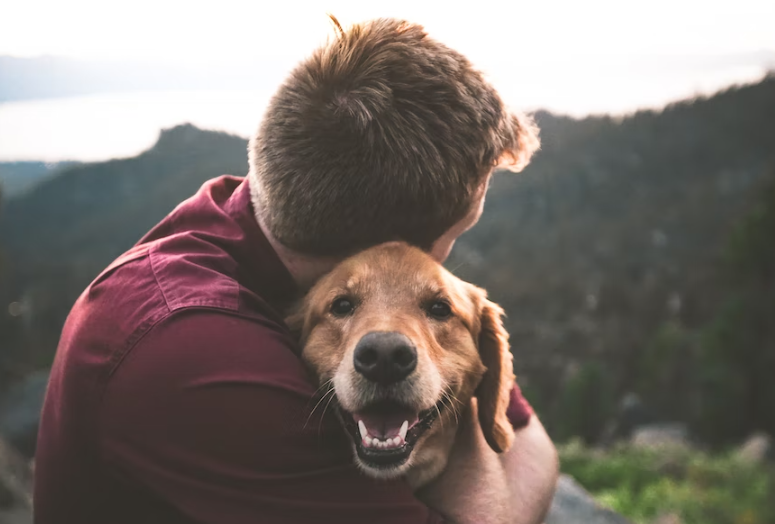Call us now:
The dangerous dog laws in Canada
For 100,000 years, dogs and humans have coexisted in a peaceful, mutually beneficial relationship where dogs were raised to be obedient. However, every year 4.5 million dogs in the U.S. (500,000 in Canada) attack or injure people in various ways, and a small number of dogs are killed. Yet, few people go to a dog bite lawyer. Despite a decrease in the frequency of attacks, children are still the primary victims of bites. Dog bite patterns vary in the U.S. and Canada, which may be due to regional cultural differences in the use of dogs, especially in the north. To understand this in more detail, there is a dog bite injury lawyer. The two main methods of regulating dangerous pets in Canada are old (created by judges) common law and (enacted by the government) legislation. A dog bite injury lawyer can help you understand the law and save you time and money.
Both employ the threat of victim compensation, defined as money paid by the dog’s owner to cover the victim’s medical expenses, discomfort, and potentially lost wages. Criminal charges, which carry jail time, may also be brought in extreme situations.
The two major common law remedies for dog bites are “negligence” and “scienter.” Negligence occurs when a dog’s owner fails to take the necessary safeguards to protect individuals the dog might injure. In some negligence instances, courts have held the victim “contributorily” accountable for the expense of his injuries if the victim is somewhat at fault — for example, by being negligent about their safety or by inciting a dog. The alternative strategy, scienter, entails “strict liability,” according to which “one preserves a dangerous thing at one’s peril.
This means that if you choose to retain a dangerous item in your home, like dynamite, you are in “peril” because the law will hold you accountable if the item causes harm to a person, even if you took steps to make the thing safer, such locking the dynamite in a box. Therefore, in such circumstances, the dog’s owner must compensate for damages caused to the victim. He cannot claim that he exercised caution and made reasonable attempts to avoid harm. However, victims must demonstrate that both the owner and the dog had a history of aggressive behaviour. Both might be challenging to prove.
It is less specific whether the victim’s good intentions were misinterpreted by the dog, such as when a stranger startled a sleeping dog by petting it or came to deliver mail. Cases often deal with human provocation rather than dog provocation. They can be fixed with the help of animal experts, but they cost money and cause delays. That’s why you need a dog bite lawyer in Toronto.
Most Canadian jurisdictions have since replaced scienter with laws that facilitate victim recompense. Nine of Canada’s ten provinces and all three northern territories have laws, statutory provisions, or rules covering dog-related injuries. (The British Columbia Act was previously overturned and has yet to be reinstated.) An animal may be put to death under all Acts. In addition to demanding victim compensation, many often impose penalties of varied sizes or prison sentences. The Acts may go too far and unfairly affect responsible dog owners and non-dangerous dogs, even while their goal is to make up for scienter’s historical wrongdoing to victims. Only two Acts (the ones in Ontario and Prince Edward Island) take into account the dog’s perception of the circumstances surrounding the bite. While Saskatchewan views provocation as a defence, it is only allowed in cases where the act was deliberate and intended to provoke the dog. Therefore, accidental acts (like falling on a dog) or actions committed with good intentions but poor judgement (like petting a strange, growling dog) would not qualify as “provocation.”

Nine of the eleven laws eliminate the requirement that the owner knows in advance (scienter) of the danger to the dog; three laws also eliminate the need for victims to prove the owner’s negligence, making denial of the owner’s guilt irrelevant. Therefore, even if the owner takes all the necessary precautions, they cannot escape punishment under these three laws in Manitoba, Ontario, Newfoundland and Labrador. If you are looking for a dog bite injury lawyer near me, our lawyers will surely help you in no time. When a dog bites someone, the owner’s precautions were insufficient but unforeseen, unusual events may have occurred, such as a natural disaster or a child climbing over a fence. However, this possibility is ignored because the owner will still be punished. A dog bite lawyer in Toronto can help you with this. The incarceration case shows that these laws, as they are commonly called, are designed to be strictly accountable. However, some argue that this strategy is actually “absolute liability” because the owner cannot escape punishment, no matter how careful and responsible he is. Don’t let a dog bite accident ruin your life. Instead, contact our team of qualified dog bite accident lawyer for a consultation. Absolute responsibility usually refers to socially undesirable behaviour to be avoided. It does not apply to owning a dog that provides many benefits to society at a minimal cost.
Canada’s current laws are not great overall. It seems wrong that they all emphasize the dog’s behaviour more than the owner’s. It is simpler to remedy owner behaviour through legislation, education, or other channels, which will likely improve owner accountability for dogs in the future. Since the owner can still get a new dog and act similarly in the future, focusing on the dog’s behaviour could destroy it as “dangerous.” Future revisions should follow this negligence-based strategy to safeguard public security and the revered human-canine link.
Are we looking for a dog bite lawyer in Toronto? Our team of attorneys is dedicated to serving clients in the Toronto area and beyond. Contact us, and our dog bite injuries lawyer can help you.
